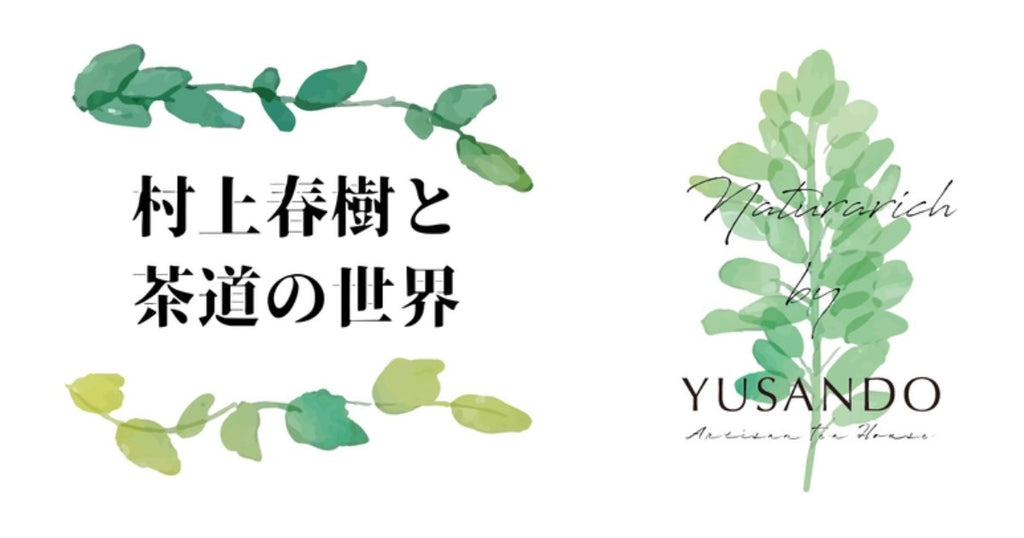The body and mind that sense signals

Yesterday, I went to a lecture by Ikki Uchida. I had always wanted to meet him, so it was a wonderful day to have the opportunity to hear him speak in person.
The theme of the talk was about martial arts and tea ceremony, which are Uchida's specialties. It started with a talk about the relationship between master and disciple, and then we talked about the core and structure of the body, Murakami Haruki's novels, and Yagyu Munenori. Although we covered a variety of topics, the way they converged into a single thread was amazing, like watching a work of art or a movie. The following is a piece of writing that I wrote based on my own interpretation, inspired by Uchida's talk.
Murakami Haruki's novels and the tea ceremony have in common that they are both solidly structured. The stricter the form and rules in the tea ceremony, the more unshakable the structure becomes. This rigidity, on the other hand, gives freedom to the details. And it is this freedom that fascinates people. Murakami Haruki's novels also consistently follow the same structure. This rigid structure allows freedom in the details. Readers are fascinated by the details and enjoy the worldview.
Communicate through signals
The relationship between structure and details in a tea ceremony can be seen in the same analogy as in Haruki Murakami's novels, where a number of signals for entertaining are embedded within a well-structured structure. There are hidden themes in the subject of the hanging scroll, the flowers, the sweets, and the kaiseki, and I think the host's desire to entertain his guests is expressed as a number of signals. People in the past probably called the variety of signals we give off culture and respected them.
The experience of Haruki Murakami's novels
I was obsessed with Haruki Murakami's novels in my 20s. I was dissatisfied with the fact that I didn't learn anything from them after reading them. When I was in a period where I wanted something more like a solid guide to life, I stopped reading Murakami. As I listened to Uchida's story, I was reminded of the indescribable sense of exhilaration I felt after reading one of Murakami's novels.
The richness of not being explicit
It's as if the whole world is overflowing with metaphors, and the ordinary everyday life feels like a wonderland. I realized that it is precisely in a worldview where themes and messages are not explicitly stated that we can feel an essential richness. I'm sure that the countless signals and metaphors that are spread throughout the tea ceremony are connected to the richness of entrusting the ability to detect the signals of the guests with the determination and resolve not to state a theme.
And if, after experiencing this, we can come to realise that the ordinary everyday life that comes to us is in fact a rich world coloured by countless signals and metaphors, then perhaps a good novel and a good tea ceremony can be considered successful.
Norwegian Wood and My Tokyo
Thinking back, perhaps it was reading "Norwegian Wood," which happened to be at home, when I was in high school that led me to take the entrance exam for Waseda University. Waseda in the 2000s was quite different from the Waseda that Haruki Murakami attended, but the cherry blossoms visible from the Chuo Line and the atmosphere of Sendagaya were still there. The Tokyo he felt and the Tokyo I feel. And the Tokyo of today.

Leave a comment